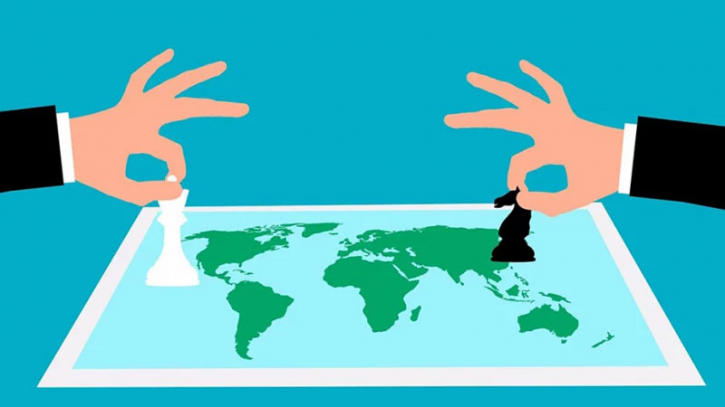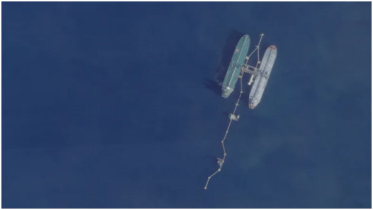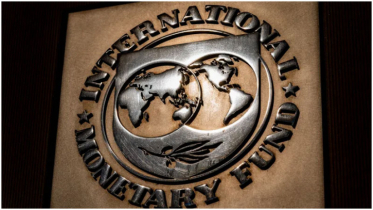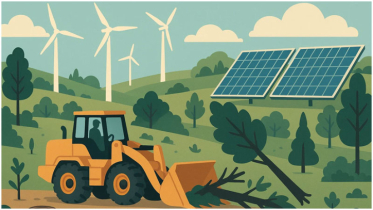Balancing East and West: What lies ahead for Bangladesh?

Bangladesh should develop contingency plans and strengthen internal institutions as the balancing act of foreign policy is increasingly becoming challenging with changing global politics, experts say.
The new government of Prime Minister Sheikh Hasina is talking about balancing the East with the West, and the foreign policy is clearly non-aligned. But in the present context, there seem to be challenges to staying neutral.
This is challenging, particularly after the Russian invasion of Ukraine and Bangladesh's own general election issues. Washington was critical before the elections due to the boycott by the opposition BNP, but Russia and China were open in making statements against US "interference.”.
Now, the question is how Bangladesh will stay neutral in a polarized world and what challenges there are in pursuing such policies.
"Bangladesh has long been effective at navigating great power competition, but one can argue that the challenge has never been as great as now," said Michael Kugelman, the director of the Wilson Centre’s South Asia Institute in an email interview with Dhaka Tribune. "It must grapple with a rising number of rivalries that are all operating with increasing intensity," he added.
"Competition between the US and China, India and China, and the US and Russia is growing more robust, and all of these rivalries are playing out in Bangladesh. Dhaka, to this point, has continued to play its strategic cards right," he said.
"It's about being a part of everything instead of being a part of nothing, and for now, Dhaka is pulling that off well. A key recent success story is its Indo-Pacific Outlook, a new plan that reflects the principles of both the US and its allies (support for a free and open Indo-Pacific) and those of China (support for national sovereignty and territorial integrity). This is balancing at its best," said Kugelman, also a columnist for Foreign Policy magazine.
"But Dhaka can't take for granted that it will always be able to sit on a fence that's feeling the strain of straddling so many different rivalries," he warned.
"There are worst-case trigger events that could post unprecedented challenges for Dhaka's nonaligned policy. Imagine China invades Taiwan, or Russia expands its war in Ukraine to NATO countries. Bangladesh would face major pressure from the US and its Western allies to take their side.
"It's important that policymakers in Bangladesh think through the implications of these potential conflict scenarios for Dhaka, even if they're not likely to arise anytime soon. Being proactive and developing contingency plans now will make it easier to identify policy responses in the event of a sudden and serious global crisis," he said.
Professor of International Relations Dr Shahab Enam Khan of Jahangirnagar University also recognized the challenges and told Dhaka Tribune that Bangladesh must focus on multilateralism and strengthening internal institutions to deal with global changes.
Prof Khan said Bangladesh, so far, has maintained a delicate and balanced position in international relations. While current global politics is undergoing tectonic shifts, the balancing act is increasingly becoming challenging.
"The sustainability of such acts can always get more complicated in the coming years.
"To deal with these shifts and fluidity, Bangladesh must focus on its internal institutions to sustain its economic growth, establish strong accountability and transparency regimes for international compliance and investment, and ensure the right policies to increase the purchasing capacity of domestic consumers.
"On the international front, multilateralism must be encouraged, but ‘national interest first’ should be the core principle," he said.
"I must add that the diplomatic and political narrative verbatim should be well articulated to avoid unnecessary gaps in relations with the major powers. We must recognize that dialogue with the major powers should always be a priority when we anticipate any crisis. At the regional level, stability in South Asia is crucial for our economy.
"Hence, our diplomatic efforts should be geared towards bridging the gap between the West and the East to keep the region stable. That means Bangladesh, as a regional power, should assume leadership to stabilize the area.
"It may sound cliché, but Bangladesh is the only country in the region that comes without conflict baggage or hyper-nationalism and, so far, offers stable economic growth," said Prof Shahab Enam Khan.
Source: Dhaka Tribune.
.png)




